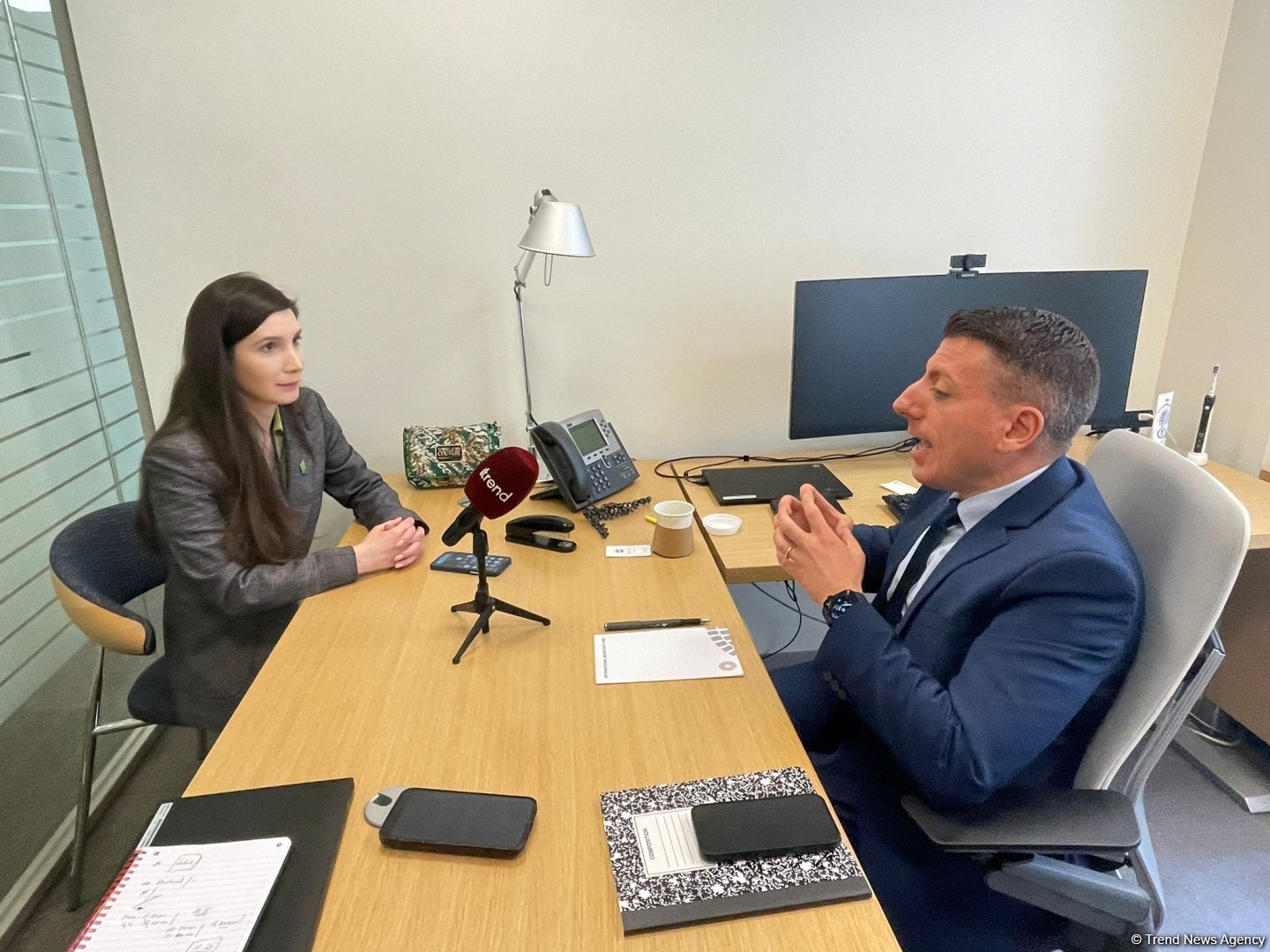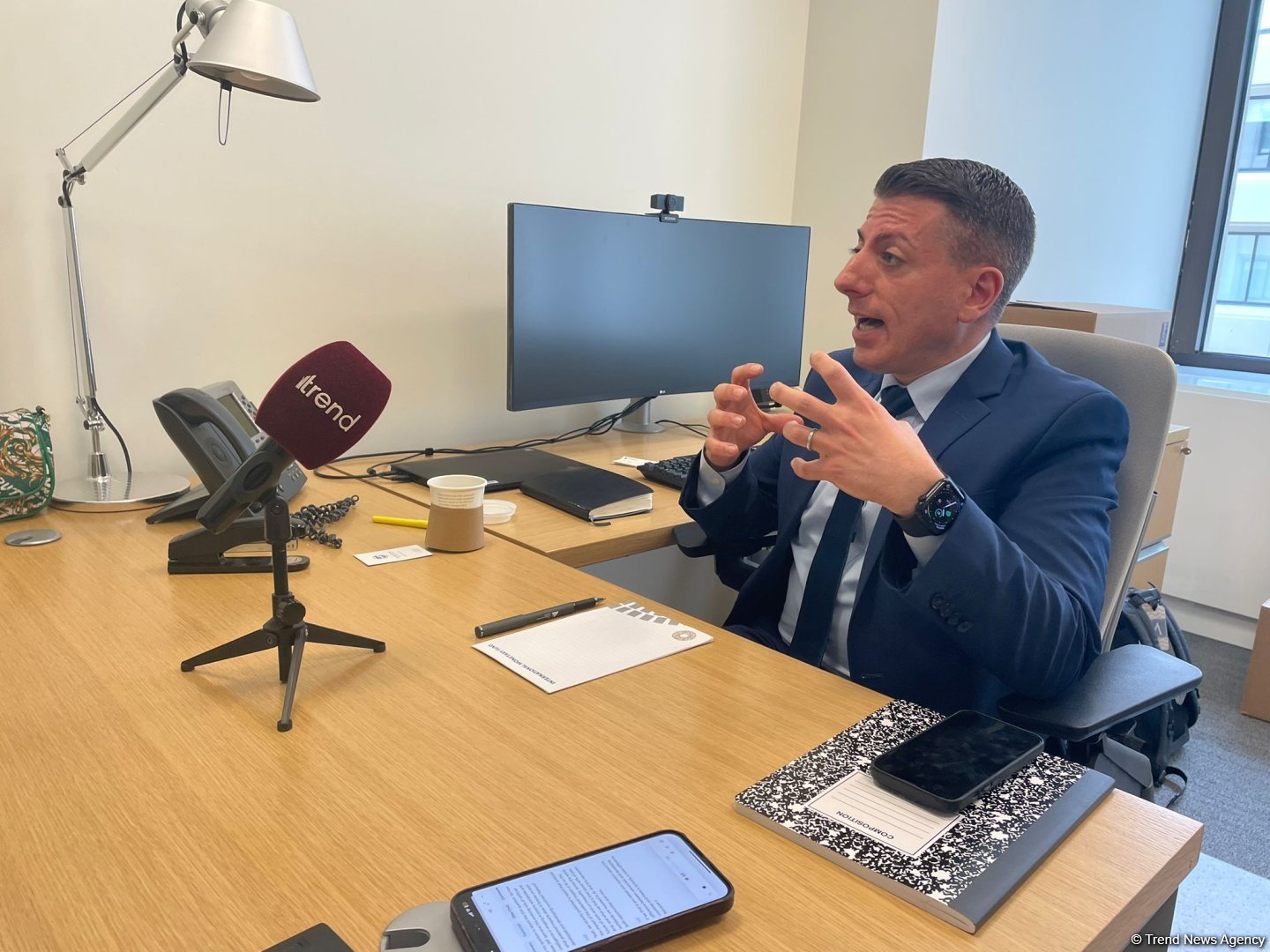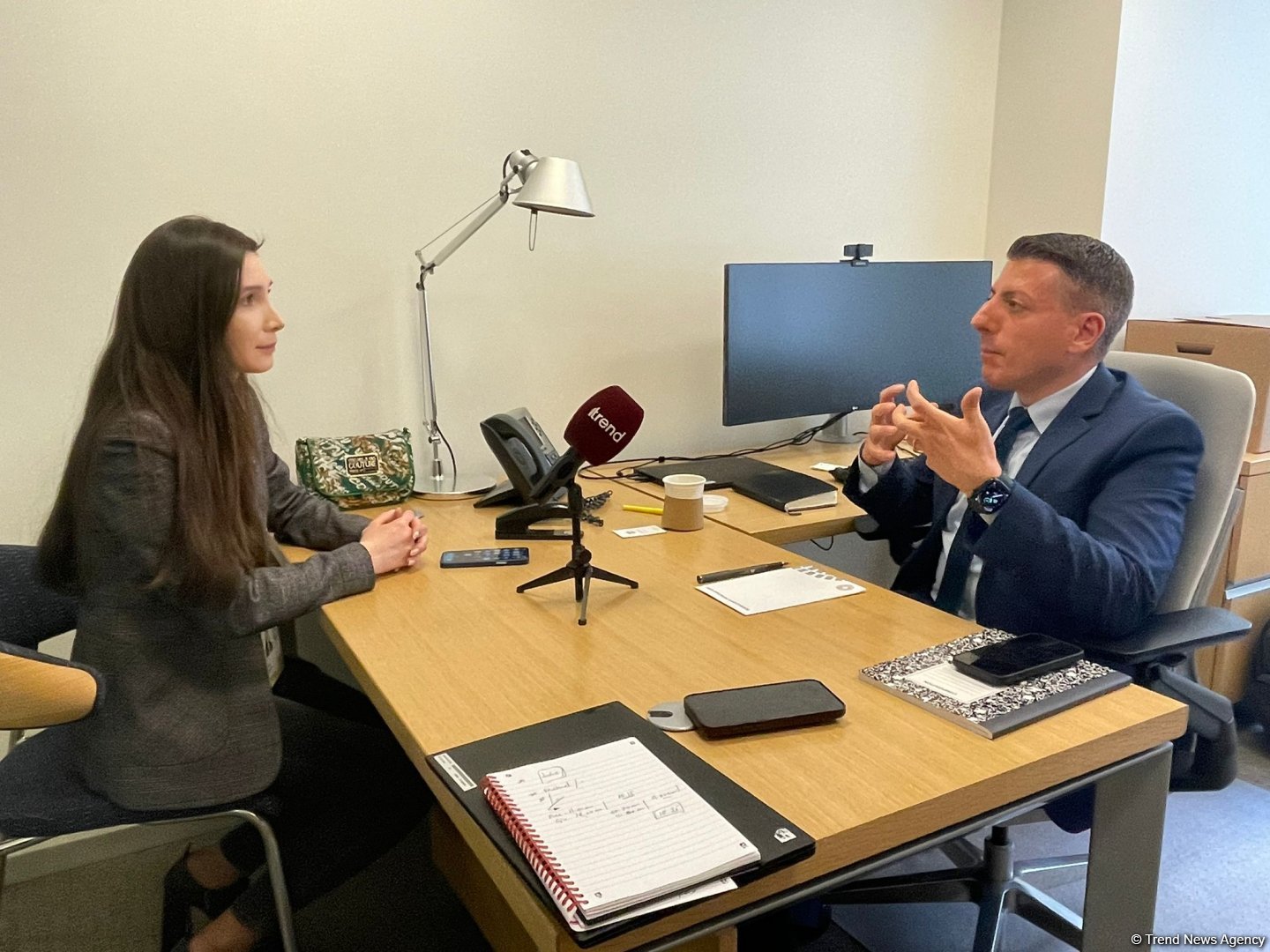WASHINGTON, U.S., April 26. The effects of artificial intelligence are likely going to be unequal also within countries, Giovanni Melina, Deputy Division Chief in the Research Department of the International Monetary Fund (IMF), said in an exclusive interview with Trend on the sidelines of the IMF Spring Meetings held from April 15 to April 20 in Washington D.C.
He pointed out that about 40 percent of jobs worldwide are exposed to AI and this represents both opportunities and risks.
“There is actually a stark difference between advanced and developing countries, because exposure in advanced economies is about 60 percent while in emerging market economies falls to 40 percent. And this implies that on one hand for advanced economies they face more immediate risks from artificial intelligence, but at the same time they are better prepared to harness the benefits from AI, while emerging and developing countries may not face immediate risks to the same extent, but at the same time they may also find it more difficult to harness the benefits from AI,” noted Melina.
He went on to add that IMF is actively engaging with member countries to harness the benefits of artificial intelligence while mitigating its potential risks to economic stability and inclusivity in two main ways.
“The first one is producing analysis, and our recent report is one example of the analysis we are producing. We use this analysis also to provide country specific advice. Also convening authorities from many member countries and fostering a debate on the issue is also a very important function of the IMF. For example, there's was the global debate of our managing director and the main topic of the debate was on AI, and both country officials and academics were invited to discuss about AI in this debate. So, it really offers opportunities both for member countries and for us to learn from their experience,” said Melina.
He pointed out that as part of its analysis IMF has developed an index called the AI preparedness index, and this index evaluates how ready countries are to adopt artificial intelligence.
“And there are several dimensions of this index that look at the digital infrastructure and the presence of appropriate skills to use AI in the economy, labor market policies, the ability to innovate or to absorb new technologies from abroad, and the regulatory framework. For example, whether there is a governance framework in place to leverage technologies, but at the same time in a way that is safe for citizens and for it to be used in an ethical way. And when we look at this index, what we find is that generally advanced economies score very high when it comes to foundational infrastructure; having the digital infrastructure in place, having the human capital in place, while in many emerging and developing countries this is still not the case,” said Melina.
He noted that this gives also some suggestions on policy priorities.
“In advanced economies, the focus should be more on improving the regulatory framework in fostering the safe adoption of AI and having the right social safety nets in place, while for developing countries, many of them have to invest in providing the digital infrastructure and the digital skills to be able to use the technology. This doesn't mean that, for example, the regulatory framework is not important in developing countries. It is still very important. But having a good regulatory framework in place, without having, for example, access to internet or a sufficient number of computers in the economy, would not foster the adoption of the technology,” said Melina.
He went on to add that the mandate of the IMF is to mainly focus on economic and financial risks and opportunities.
“So obviously this new technology offers an immense potential to increase productivity, and to lift incomes around the world, but at the same time, it poses risks for inequality, for employment, for financial stability. And these are all central policy issues that the IMF has been very interested in for a very long time. When it comes to these risks, the role of the IMF is to produce analysis and to provide tailored advice to mitigate them,” said Melina.
He believes that the main focus should be on policies that are as much as possible inclusive.
“For example, increasing safety nets. In our report, we find that the effects of artificial intelligence are likely going to be unequal also within countries. For example, we have young, more educated workers that are much more likely to be able to transition to jobs where artificial intelligence is complementary to human labour. While for older workers this is more difficult. So, there should be both labor market policies that facilitate this transition, but also safety nets that take care of those people who find it more difficult to adapt to this technological change.
The impact of artificial intelligence from the macroeconomic viewpoint is currently very uncertain. Because on one hand, there are potentially big productivity gains and also, but studies available right now are very heterogeneous in predicting the impact on productivity. At the same time, there are risks that need to be taken into account. So, our role is to provide advice on policies that may shelter countries from these risks and to maximize the potential benefits,” Giovanni Melina concluded.
Follow the author on X: @Lyaman_Zeyn













